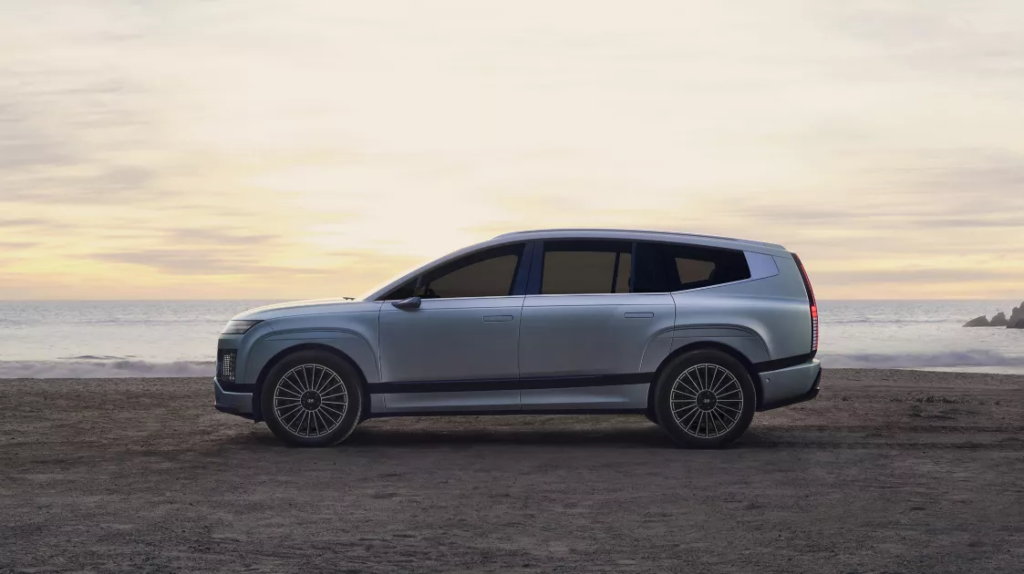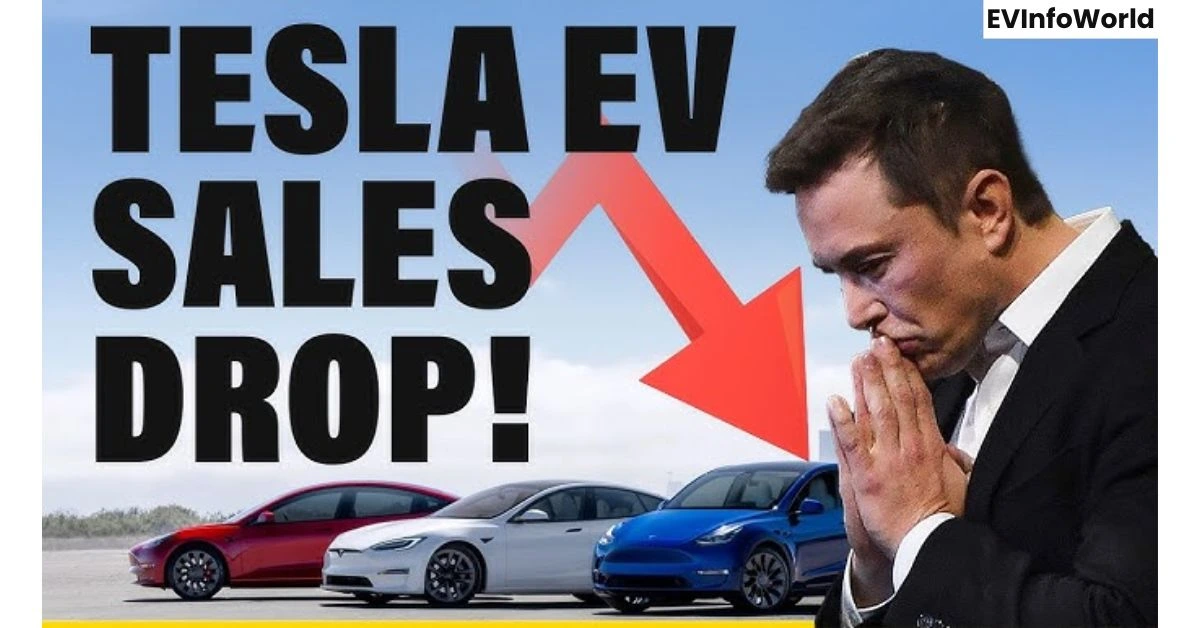2025 Federal EV Tax Credit: Tesla Cybertruck, Hyundai & Kia EVs Now Eligible!
The 2025 Federal EV Tax Credit has brought a new wave of excitement for electric vehicle (EV) buyers in the United States, making several popular EVs eligible for a $7,500 tax break. Among the vehicles now qualifying are the Tesla Cybertruck, Hyundai Ioniq 5, and Kia EV6. However, with the incoming Trump administration potentially looking to end the tax credit, time may be running out for those hoping to save on their next electric vehicle purchase.
Table of Contents
What’s New for the 2025 Federal EV Tax Credit?
As the 2025 Federal EV Tax Credit guidelines unfold, a variety of electric vehicles have gained eligibility. The credit, originally part of the Inflation Reduction Act, aims to make EVs more affordable while supporting cleaner transportation options.
EVs Now Eligible for the 2025 Federal EV Tax Credit:
- Tesla Cybertruck – For the first time, the highly anticipated Tesla Cybertruck qualifies for the full $7,500 tax credit. This inclusion makes the Cybertruck even more attractive for those looking to switch to an electric vehicle.
- Hyundai Ioniq 5 and Ioniq 9 – Hyundai’s Ioniq 5 crossover and the upcoming Ioniq 9 SUV, both now eligible for the full tax credit, mark a significant milestone for the brand in the U.S. market.
- Kia EV6 and EV9 – Kia’s popular EV6 and new EV9, a spacious 3-row electric SUV, also make the list for 2025.
- Genesis Electrified GV70 – The luxury brand’s Genesis Electrified GV70 is another exciting addition to the 2025 eligible vehicles.
List of Other Notable EVs Eligible for the 2025 Federal EV Tax Credit:
- Tesla Model 3, X, and Y – Continuing eligibility for these models, which remain among the most popular EVs in the U.S.
- Ford F-150 Lightning – A full-size electric pickup truck that now qualifies for the tax break.
- Chevrolet Silverado EV – Chevrolet’s entry into the electric pickup market also qualifies.
- Honda Prologue – Honda’s first all-electric SUV in the U.S. is also eligible.
Vehicles No Longer Eligible:
Several EVs have lost their eligibility for the 2025 Federal EV Tax Credit, including:
- Volkswagen ID.4
- Rivian R1T & R1S
- Nissan Leaf
Why Are Hyundai and Kia’s EVs Now Eligible?

Hyundai’s and Kia’s newly built EVs now qualify thanks to the company’s investments in U.S.-based manufacturing plants. These plants, such as Hyundai’s Metaplant America and Kia’s facility in West Point, Georgia, meet the requirements for domestic production under the updated rules of the 2025 Federal EV Tax Credit.
Hyundai’s statement:
“Hyundai is proud to offer U.S. consumers more affordable, eco-friendly electric vehicle options through our new EV manufacturing plants. The federal tax credit will help even more people make the switch to clean, efficient electric vehicles.”
Trump’s Plans to Eliminate the EV Tax Credit
While the 2025 Federal EV Tax Credit is available to U.S. consumers, the future of this incentive is uncertain. President-elect Donald Trump has made it clear that he plans to eliminate the EV tax credit upon taking office, potentially on his first day.
Elon Musk, CEO of Tesla, stated,
“I believe the EV tax credit is not necessary, and if it is removed, it will only accelerate the push for more efficient electric vehicles. Regardless, Tesla will continue to thrive.”
This statement underscores Musk’s belief that Tesla can succeed without government incentives. However, many industry experts argue that such a move could slow down the transition to electric vehicles, especially for consumers looking for lower upfront costs.
How Can You Take Advantage of the 2025 Federal EV Tax Credit?
To qualify for the 2025 Federal EV Tax Credit, you must meet specific eligibility requirements, such as:
- Income Limits:
- Individual income must be under $150,000.
- The head of household income must be under $225,000.
- Joint filers must earn less than $300,000.
- Vehicle Price Limits:
- The base price of qualifying cars must be $55,000 or less.
- For SUVs and trucks, the price limit is $80,000.
- Leasing Loophole:
If you’re leasing an eligible vehicle, you may still be able to access the tax credit. The credit can be applied to leases, which means more opportunities for savings.
Should You Act Fast?
With the 2025 Federal EV Tax Credit potentially ending soon, buyers interested in taking advantage of the current offers may want to act quickly. While the credit could remain in effect for several months, the shift in leadership may hasten its cancellation.
How Long Will the EV Tax Credit Last?
- Current Deadline: The future of the EV tax credit is uncertain, but it may last until President Trump’s administration takes action.
- Leasing Option: If you choose to lease, you may still qualify for the credit, even if the tax break is eliminated for buyers.
Why the EV Tax Credit Matters for EV Adoption
Government subsidies like the 2025 Federal EV Tax Credit have been instrumental in helping U.S. consumers make the switch to electric vehicles. Studies show that up to 50% of potential EV purchases could be lost if the tax credit is removed.
Josh D. Boone, Executive Director of Veloz, emphasizes the importance of these subsidies:
“Public investments are critical. It’s clear that Americans think EV incentives should be provided by the government to support clean transportation access.”
How Will This Impact the U.S. EV Market?
If the 2025 Federal EV Tax Credit ends, we could see slower adoption rates, especially among middle-class buyers. Automakers that have shifted to domestic production and invested heavily in EV manufacturing might face setbacks, particularly brands like Hyundai, Kia, and Tesla.
Read more: Elon Musk Honored With The Title Of Innovation Newsmaker Of The Year 2024 by The Epoch Times
FAQs
What is the 2025 Federal EV Tax Credit?
The 2025 Federal EV Tax Credit offers up to $7,500 in tax savings for eligible electric vehicles (EVs) sold in the U.S. The credit applies to vehicles manufactured in North America with domestic battery sourcing.
Which EVs qualify for the 2025 Federal EV Tax Credit?
The Tesla Cybertruck, Hyundai Ioniq 5, Kia EV6, Genesis GV70, and many more models are eligible for the credit. Check the full list on the U.S. Department of Energy website.
Can I apply the 2025 Federal EV Tax Credit to a lease?
Yes! If you lease a qualifying EV, you can still apply for the 2025 Federal EV Tax Credit, thanks to a leasing loophole.
Will the 2025 Federal EV Tax Credit end soon?
The tax credit could end once President-elect Trump takes office. He has expressed plans to eliminate it, although Congress would need to vote on it first.
Are there any income restrictions for the Federal EV Tax Credit?
Yes, income limits are set at $150,000 for individuals, $225,000 for heads of household, and $300,000 for joint filers.
Does the vehicle price affect eligibility for the 2025 Federal EV Tax Credit?
Yes. Vehicles priced under $55,000 qualify for cars, while SUVs and trucks must be under $80,000 to be eligible.
What happens if the EV tax credit is removed?
If the tax credit is removed, EVs may become more expensive, potentially slowing down the shift to electric vehicles.



